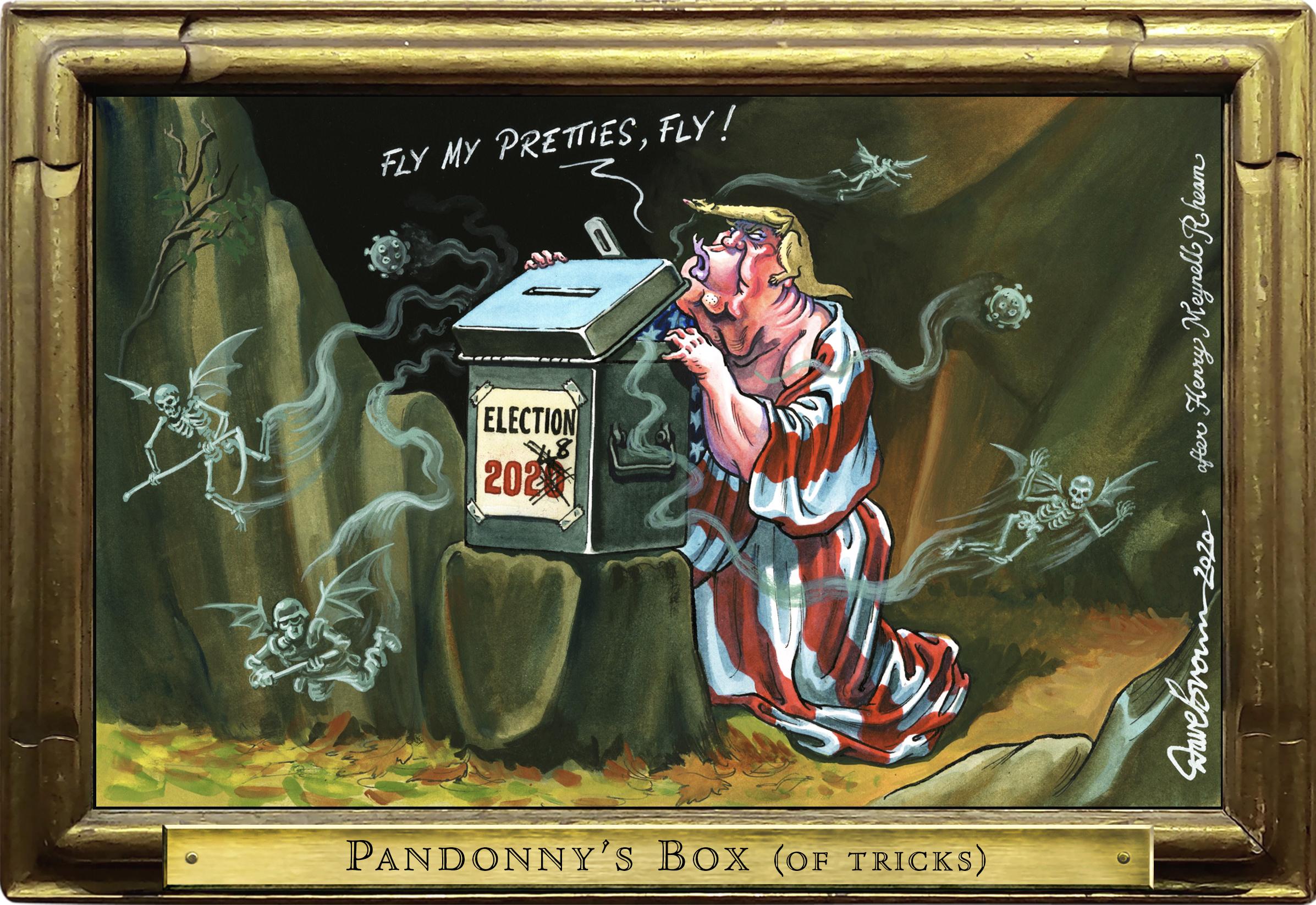Donald Trump could lead America into the biggest constitutional crisis since George Bush and Al Gore
Congress effectively has the power to stop him but the threat of legal action could still deliver the president his wish of a postponed election, writes Sean O'Grady


Can President Trump postpone the next presidential election? The short answer is no, as the timings are up to Congress, not him; the longer answer is that he might just pull it off, through a mixture of political manoeuvrings, legal chicanery and general bullying.
Since the coronavirus crisis, this unexpected question has been raised a few times. Covid-19 and the successive waves of infections in some states has meant that some local authorities have made provision for a massive expansion in “mail-in” voting, to avoid personal contact and spreading the virus.
This level of non-personal voting would be unprecedented, and Trump, among others, has voiced concerns – though postal voting has not suffered a particularly high incidence of fraud in the US. Mr Trump warns of litigation – possibly from his own lawyers – in such circumstances. A more cynical reason why the president has raised again the prospect of a delay is that he is on course to lose. A delay would mean Covid-19 passing, a recovering economy and a rally-driven fresh sense of momentum.
Given that the US constitution gives the right to determine the date of a presidential election exclusively to the Congress, a fairly obvious check on the abuse of executive power, it is not in Trump’s gift to alter it. Congress would have to change the law it passed in 1948 nominating the Tuesday after the first Monday in November, every fourth year. Given, also, that the Democrats control the House of Representatives, and are anyway outraged by the idea, for party political and constitutional reasons, that is not going to happen.
If the election were ever to be put back by more than a few weeks it would also require the constitution to be altered, as the president and vice president’s terms of office expire at noon on 20 January (the 20th amendment moved it from March). The date stands, elections or not. So, assuming that her own election went ahead, Nancy Peolosi, speaker of the House of Representatives (Democrat) would act as president and colloquially become President Pelosi, pending the next election. If her own election were also postponed and she ceased to be in Congress, then they’d turn to the president pro temporary of the Senate, the comparatively obscure senator from Ohio, Charles “Chuck” Grassley (Republican). He is 86 and not up for re-election until 2022. The buck stops at Chuck. If he doesn’t fancy it, the next in succession is the secretary of state, Mike Pompeo.
So that prospect of that kind of craziness means that the election probably will go ahead at the appointed time. That said, there are further options based on the peculiarities of the electoral college – technically it is state delegates not the popular vote that puts someone in the White House. Some states, reportedly 45, have the power to determine the timing of the election of these delegates, if not the popular vote, and thus the ability to delay proceedings past the date in December when the college is supposed to go through the formalities. That would though run straight into the constitutional arrangements for the new president, and the President Pelosi/Grassley/Pompeo scenario.
The alternative approach, now heavily hinted at by Trump, is that the election still goes ahead, he loses and he then launches a mass of litigation to get the result annulled, right up to the Supreme Court, while he is still president legally.
That would mean following the precedent of 2000, the contest between Al Gore and George W Bush, the tightest ever. A series of court actions turned on the conduct of the count and multiple chaotic recounts in Florida, and the notorious “hanging chads” caused by faulty vote-registering machines. Fortunately, from a constitutional point of view, the Supreme Court resolved the matter in time, the electoral delegates from Florida could take part in the electoral college and order was restored by mid December – but it was a crisis. The horrible memory of that may persuade some to allow Trump to have his postponement, for fear of a President Pelosi/Grassley/Pompeo, and another divisive chapter in American history. Indeed Trump could use continuing arguments stretching into January to use his position as commander-in-chief and use the army to refuse to leave office, effectively a coup d’etat, the stuff of a far fetched political novel. So far the mood seems to be to call the president’s bluff, but in any case America’s biggest constitutional crisis since Watergate is 94 days away.
Join our commenting forum
Join thought-provoking conversations, follow other Independent readers and see their replies
Comments